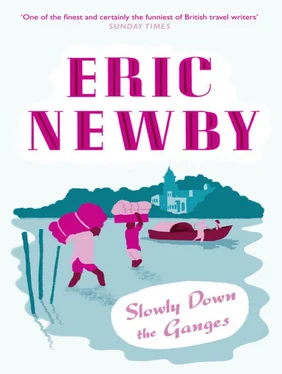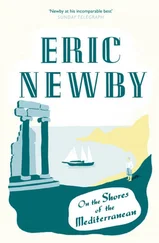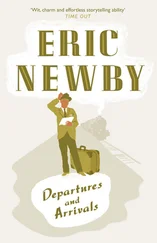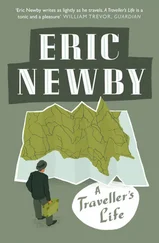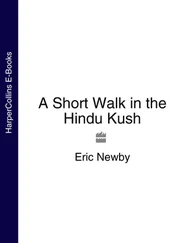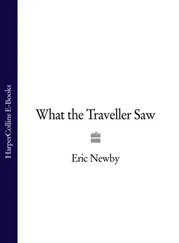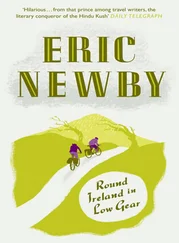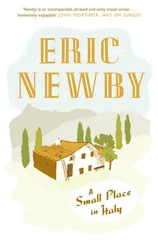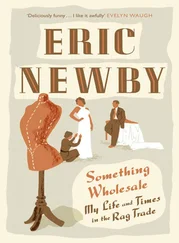We had arrived at Hardwar from Delhi, at half past six the previous morning when it was still dark. We were extremely cold – the train had been unheated and the window had remained open despite our efforts to close it. With a retinue of porters that we were already beginning to regard as inevitable, we moved off towards the waiting-room where we were to meet an agent from Shell who had been allocated the unenviable task of helping us to find a boat capable of taking us down twelve hundred miles of the Ganges to the sea.
He had not yet arrived. Soon the light of a grey dawn began to seep in under the roof of the station. It revealed a religious bookstall on which the proprietor was already beginning to set out his stock, and numbers of red-behinded monkeys which, like the cows at the station at Delhi the night before but without the religious sanction which allows cows in Hindu India to do what they like, were taking liberties with passengers’ baggage.
I bought a guide book from the bookseller. ‘Caution’, it said. ‘Hardwar is a dry area, therefore do not keep with you, any intoxicative article along with meat, eggs, etc. Wine, Bhang, Charas, Ganja, Opium, etc., are not allowed here! Those who are addicted to such habits can obtain from Lahksar, Rooorkee, or Dehradun, meat and aggs from Jwalapur (Pick-pockets theives and gamblers). Take every possible care of your valueables from theives and pickpockets; here you will find them on every step.’
With the dawn came breakfast: porridge, tea and toast, brought by a sad-looking waiter in a grimy white uniform and a head-cloth that had seen better days. He was the archetype of all the waiters on all the railway stations on which we were to breakfast. On the walls, prominently displayed, were notices warning visitors that in the sacred area of Hardwar – which included the station – neither fish, nor fowl nor eggs would be served.
Some time later the man from Shell appeared, together with a colleague. They had already tried to find a boat for us but without success. ‘If we are to do so,’ they said, ‘we should set out instantly.’ We were just getting into their motor car when G., who was going to accompany us on the first part of the journey and who was of high caste, announced that he had not yet performed his ritual ablutions. He disappeared into the station retiring-room for half an hour while the rest of the party waited in the cold, Wanda and I with ill-concealed impatience; the men from Shell with Oriental stoicism. What did Oriental stoicism conceal, I wondered – thoughts of roasting over slow fires, impalements and decapitations?
I looked into their eyes, seeking the answer, but in vain. At this moment I formed a high opinion of them that subsequent experience was to enhance rather than diminish; a circumstance which, in India, where the inhabitants tire rapidly of the visitor and the converse is equally true, is contrary to the general rule.
In a silence provoked by exasperation we set off to visit the Irrigation Engineer, whose house was by the headworks of the Upper Ganges Canal, to ask for the loan of a boat. He was away on tour, but we were told that there was a contractor, the master of a temporary bridge over the river, who was reputed to have a boat and we set off in search of him.
The contractor lived in an ancient suburb to the south of the town called Kankhal. It was a pleasant place with grass growing on the verges of the side streets, in which holy men were taking their constitutionals carrying baggy umbrellas. It was a brilliant morning and the air was as invigorating as anything from an oxygen cylinder. Our spirits rose.
His office was on the ground floor of a small building. The room was sparsely furnished with a large divan which was covered with a clean white sheet. The windows, which were glassless, were fitted with shutters, and the light that filtered through them into the room gave it the appearance of being filled with water. The five of us squatted untidily on the divan which was awfully hard, and I tried to detect some sign of interest or compassion in the flinty eye of the contractor who addressed himself, without any of the customary enquiries about one’s health and strength, exclusively to the men from Shell. He was a Brahman. He wore a little white cap, a high-buttoned jacket of village homespun with a stand-up collar and a dhoti. Normally a dhoti looks rather ludicrous when worn with socks, suspenders and brown shoes; but there was nothing comical about this man of iron. He did not offer us tea.
‘He says he has a boat that he will sell you.’
‘We don’t want to buy a boat. We want to hire one.’
‘He says he will sell you a boat.’
It was obvious that no good would come of pursuing this particular line any further.
‘ Yih kisti achcha hai? ’ Even after a lapse of more than twenty years I was determined to speak the language, however deplorably.
‘Is it a good boat?’
So far as the contractor was concerned I might not have been there at all.
‘He says that it is the only boat in Hardwar. He is indifferent to whether you take it or not. He also says that if you do not wish to have his boat why have you come to ask him for it? He is a villain.’
‘Can we see it?’
‘He says that you can see the boat but as there is only one he asks why it is necessary for you to see it. However, if you wish to do so he will accompany you. It is at his bridge.’
‘We don’t have to thank him, do we?’
‘It is unnecessary.’
The bridge was at a place called Chandi Ghat, * some little way downstream from the town. As we drove over the embankment built by the British on the right bank, we had our first view of the Ganges.
It was a bit of a shock. It was December, the dry season, and the river which in the rains would have been a mile wide now ran sluggishly through a wasteland of sand and stones. Although it was already so far from its source, it was no more than 70 yards wide. Most of the water was being drawn into the Upper Ganges Canal which takes off just below Hardwar.
It was a wooden bridge supported on piers of rough dry stone, and the roadway across it was covered with coarse grass. Bullock-carts with huge wooden wheels were creaking over it, towards us, loaded with bamboo from the jungle on the east bank and the drivers sat high up in the front of their vehicles like ships’ figureheads.
Moving across the bridge in the opposite direction were hill people on their way up to Garhwal, carrying pack frames with enormous loads lashed to them. With their snub noses and slant eyes they were as different from the bullock-cart drivers, who were from the river bank, as visitors from outer space. Upstream from the bridge a number of flat-bottomed country craft, like small barges, were moored to the bank. Nowhere was the water more than two feet deep. Of the boat that we had come to see there was no sign.
At this moment a number of men arrived at the water’s edge pushing a hand-cart on which there was a dead cow covered with a red cloth. They began to off-load it, intending to dump it in the river. Now, for the first time since we had met him, the contractor showed signs of emotion. It was obvious that if they succeeded in getting away with this ill-conceived burial the cow would remain stranded there, a source of embarrassment, until the end of June when the monsoon would come and wash it away and the bridge with it. He rushed to head them off. Soon the air was rent by angry cries and an interminable wrangle began.
‘You are Brahman. This is a sacred animal. She must go to Ganga!’
‘I am Brahman but you must take your sacred animal somewhere else!’
While we were waiting for the dispute to end, we sat on a log outside the bridgekeeper’s hut which was made of reeds, and looked upstream. To the right, over the river, the jungle that once had teemed with wild animals – tigers, leopards, herds of elephants, sloth bear, wolves, nilgai, antelope, black buck and the terrible wild dog – jungle in which the Indian lion survived until the beginning of the nineteenth century – and which was still well stocked with poisonous snakes, cobras and karait – broke at the foot of the hills in a green hazy sea; while far to the north, seen through the deep trench that the Ganges had dug for itself through the foothills on its way to the plains in which we now found ourselves marooned, an impressive, snow-covered peak rose, shining in the sun.
Читать дальше
